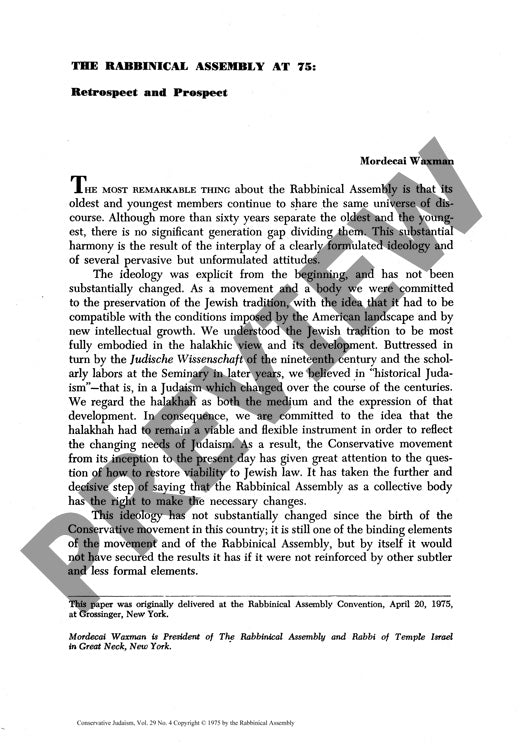The Rabbinical Assembly at Retrospect
Couldn't load pickup availability
Conservative Judaism's emergence as the normative form of American Judaism during the 20th century hinged on three critical elements: a flexible yet historically-grounded ideology, consensus-driven leadership, and pragmatic interpretation of Jewish law. The Rabbinical Assembly's first 75 years reveal how these elements shaped Conservative Judaism's institutional growth, educational achievements, and development of American-trained Jewish leadership. Through historical analysis and retrospective evaluation, this research traces the Assembly's responses to transformative events like the Holocaust and Israel's establishment, while examining its success in post-war initiatives including synagogue centralization and scholarly development. The movement's institutional accomplishments, however, stand in tension with growing challenges: declining religious observance, rising intermarriage rates, and a generation experiencing unprecedented religious freedom. Analysis of archival materials and organizational records demonstrates that the Assembly's future vitality depends on pivoting from institutional to religious revival, emphasizing Judaism's theological and ethical substance over ethnic identity alone. The findings indicate that the Rabbinical Assembly must transform from a professional society into a leadership class capable of creating innovative educational frameworks and spiritual approaches that speak to contemporary Jewish life's complexities.

More Information
-
Physical Description
-
Publication Information
Published 1975
ISBN
-
Publication Credits
Mordecai Waxman

